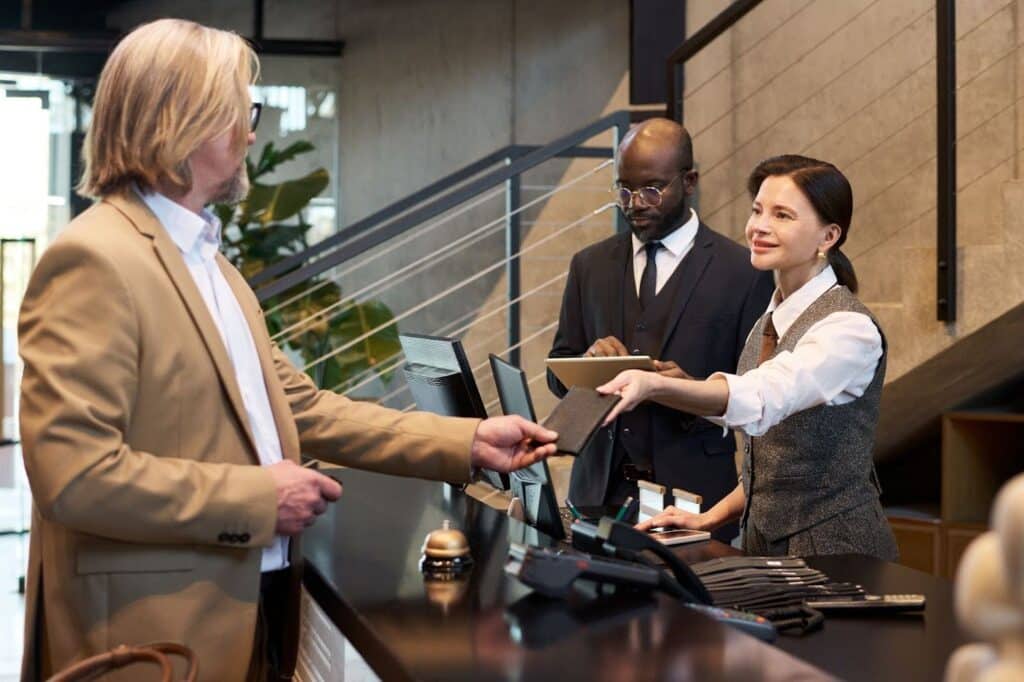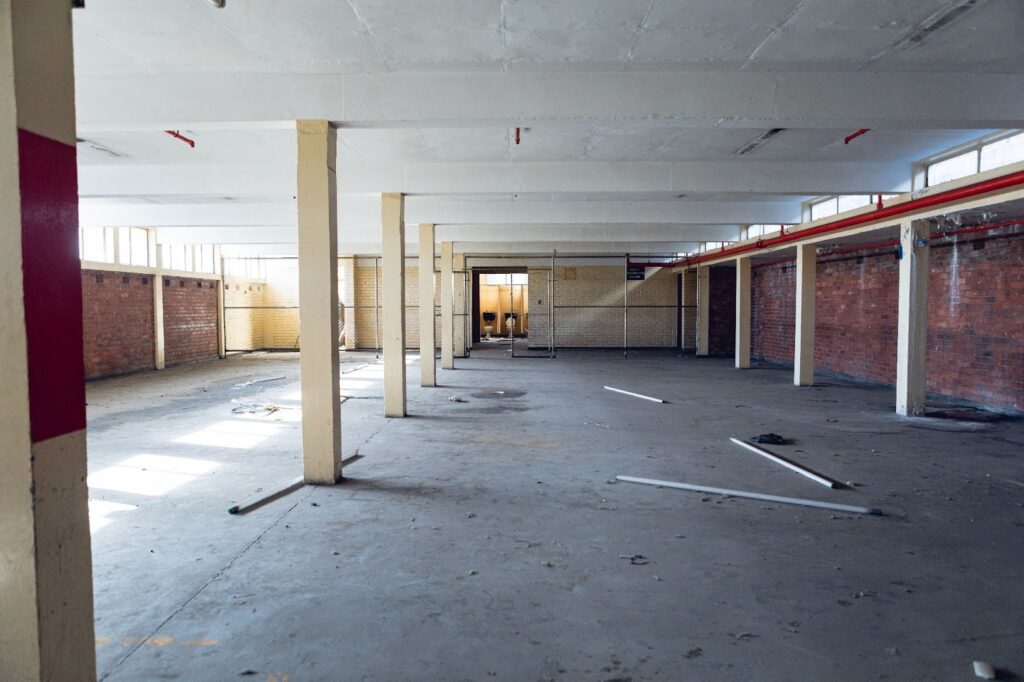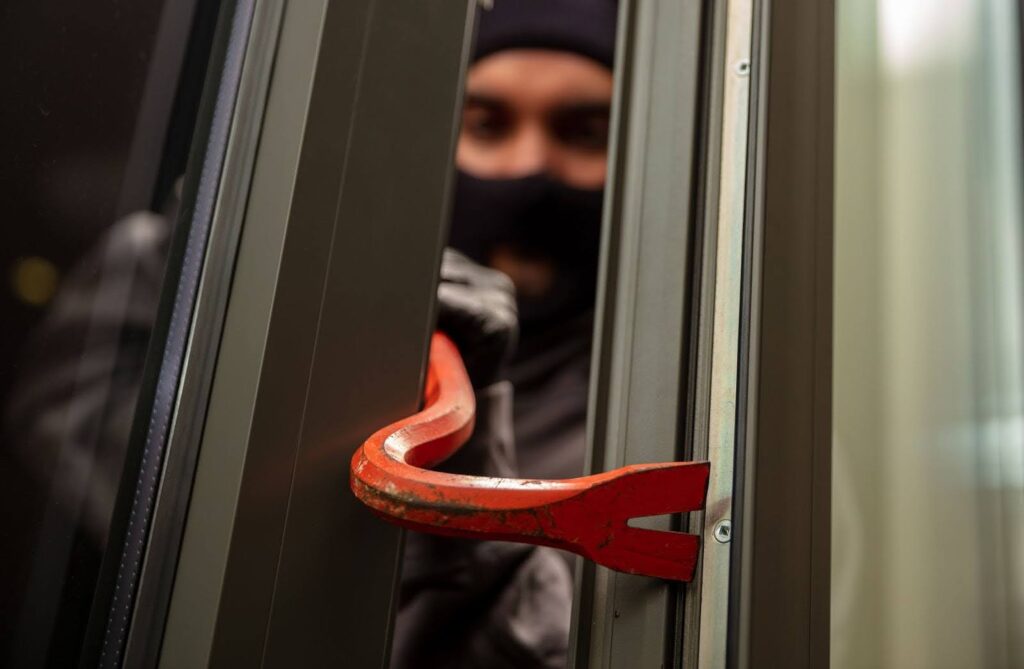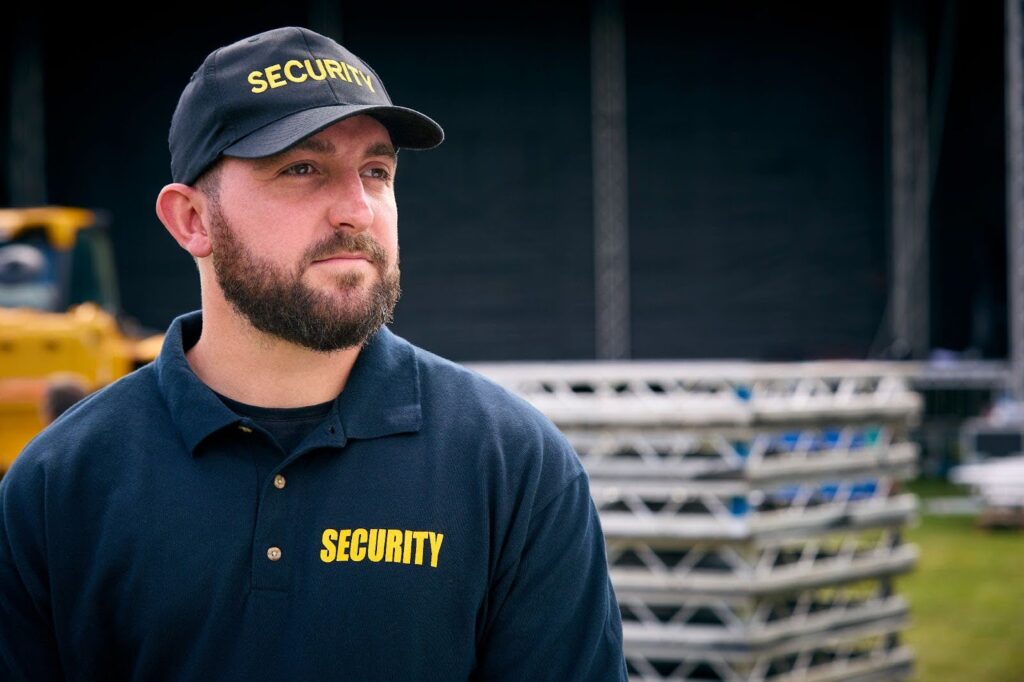
Executive Protection Security Services: Your Complete Guide
Corporate executives can face security threats ranging from theft and harassment to kidnapping and even homicide. That’s why more and more executives across the country are not only upgrading their security systems but also surrounding themselves with private security details.
Executive security teams provide a host of invaluable benefits, including physical protection, travel protection, and cybersecurity protection. But to find the right team for you, it’s important to understand what they do, know the different types of protection they can provide, and know the key questions to ask before contracting for services.
If you’re ready to protect yourself or other executives at your firm, here’s everything you need to know about executive protection security services.
Executive Protection vs Bodyguards: What’s the Difference?
Bodyguard services offer personal protection — also known as “close protection” — against physical threats, but executive protection security guards provide corporate executives with more than just close protection.
They specifically offer intelligence-driven security services, including intelligence gathering and logistical planning. Executive protection often involves complete security details that include family protection, security drivers, and residential security teams.
What Do Executive Protection Security Services Include?
Depending on your needs, you can hire an executive protection agent or team to provide essential protection services, as well as more advanced services like travel protection, family protection, and cybersecurity.
Essential Security Services
All executive protection teams offer these essential security services:
- Close protection officers (CPOs) for physical security
- Threat assessment and risk management
- Location scouting prior to arrival
- Secure transportation using trained security drivers
- Emergency response and evacuation planning
For some executives, those services are all they need to feel secure from potential threats. Others may prefer to hire teams that can provide the additional services covered below, from intelligence planning to digital threat monitoring.
Intelligence Planning
Executive security provides intelligence planning services that include:
- Background checks on new contacts, employees, or associates
- Social media monitoring for threats or information leaks
- Travel intelligence reports for domestic and international trips
- Route planning and alternative route mapping
- Coordination with local law enforcement when necessary
Residential and Workplace Security
These executive protection services are designed to keep you safe at work, home, or both:
- Conducting home security assessments and upgrades
- Coordinating with existing residential security staff
- Implementing office security protocols and visitor screening procedures
- Screening mail and packages
- Integrating with corporate security teams
Family/Lifestyle Protection
If necessary, you can hire security to provide additional protection for you and your loved ones:
- Security coverage for spouses and children
- School runs and children’s activity protection
- Special event security for galas, charity events, and conferences
- Vacation and personal travel security
- Coordination with household staff on security protocols
Cybersecurity
Digital threats can be as dangerous as physical threats. Hire executive protection cybersecurity services to:
- Provide cybersecurity awareness training
- Install secure communications setups
- Conduct digital footprint assessments
- Coordinate with IT security teams
- Protect against doxxing and online harassment
Related: Celebrity Security Guard: The Complete Hiring Guide
What Type of Businesses Need Executive Security?
Executive security services are intended for corporate executives like company presidents, company vice presidents, CEOs, CFOs, and other C-suite executives, as well as top-ranking board members or key figures within the company.
These security services are most common for C-suite execs in the following high-risk industries:
- Finance: A high-stakes sector, finance executives often amass considerable wealth and influence, which can make them targets. To offset reputational or financial losses from harm to key personnel, many finance corporations hire elite protective services.
- Technology: Tech execs hold valuable intellectual property and tend to have high profiles in the media. This makes them vulnerable to corporate espionage and other threats.
- Defense: Defense companies handle sensitive national security contracts and classified information. As a result, their executives can become targets for foreign and industrial espionage.
- Energy: Energy sector execs oversee valuable assets and are often involved in geopolitical operations in volatile regions. Oil and gas companies, in particular, can have polarizing public perceptions that lead to distinct threats.
- Biotechnology and pharmaceuticals: Healthcare execs work in high-stakes medical research settings. They can face security risks due to their work with intellectual property, confidential research data, and even activist threats.
High-profile companies in the public eye may also benefit from executive protection, such as:
- Professional sports leagues and athletic teams
- Film and TV production companies
- Record labels and music production companies
- Fashion companies with notable principals on staff
Learn About: Top Security Threats to California Commercial Properties
Warning Signs You Need Executive Protection
Here are some of the most common warning signs that you or your business should strengthen your protective measures.
You’re a High-Profile Individual
High-profile individuals are often the target of security threats. Protect yourself with executive security agents if you are a high-net-worth individual, a public figure, a celebrity, or a current or former politician running a company or serving on the board.
You Work for a High-Profile Company
Any company and any executive can be the target of harassment, theft, stalking, or kidnapping, and the stakes are even higher if you work for an international company that requires frequent international travel. An experienced security detail can keep you safe while you’re in transit, in a foreign hotel, and attending business meetings.
You’re Already Concerned About Your Personal Safety
If you feel concerned about your personal safety or have already received threats, you need executive protection security services now. Threats can include physical threats as well as cyber threats like cyberbullying, doxxing, and online stalking.
For even greater peace of mind, hire a team to protect your family, spouse, and children.
When to Prioritize Executive Security and Close Protection
Even if you or your company’s executive team aren’t facing any direct threats, some circumstances and events can put your executive team at higher risk.
- Your company is public or about to go public: Stockholders and shareholders could pose threats or harass the company’s executives.
- Your company is undergoing a major merger or acquisition: Employees could pose threats if they fear that merging will lead to downsizing, which could cause them to lose their jobs.
- Your company is involved in a court case: High visibility and lots of media coverage can elicit dangerous, unwanted attention from the public.
- Your company, or one of its executives, is engaged in controversial behavior: Negative attention from the media for personal behaviors, launching a controversial product, or engaging in corporate behaviors like mass layoffs can all put you at greater risk.
- Your company is quickly growing or becoming more visible: The more well known you are, the more people may want to do you or the company harm. This can change fast if your company is growing rapidly or suddenly receiving intense media attention it wasn’t before.
Assessing Your Company’s Security Needs

During the Risk Assessment
During a risk assessment, the security company will analyze all aspects of your business, including online company profiles and comments, media attention (positive and negative), and how much personal information is available online about you or your company’s executives. They will also assess the vulnerability of your office, corporate headquarters, and residences, if needed.
After the Risk Assessment
Depending on the assessment results, the security company will make a recommendation. If you’re facing an imminent threat, they may recommend hiring a full executive protection team immediately. Otherwise, they will recommend a more gradual approach to putting security measures in place.
The most common executive security measures to recommend include:
- Hiring lobby security guards for your office
- Installing or upgrading security technology like alarm systems, access control systems, and CCTV surveillance cameras
- Hiring personal security guards for select executives or during select events, such as high-profile public events, shareholder meetings, industry events, or high-stakes negotiations
Executive Security: Confidentiality and Discretion
For CEOs and other business executives, discretion matters. Executive travel patterns and schedules can be sensitive information, and public knowledge of travel plans and security measures can compromise how effective they are. Business dealings and negotiations also require confidentiality.
How to Evaluate a Security Firm’s Privacy Practices
When comparing security firms, consider their willingness to sign comprehensive non-disclosure agreements (NDAs), including before the initial consultation.
Seek out firms with strong data protection and privacy policies in place. They should also emphasize low-profile or discreet protection. Ideally, their guards should have a professional appearance that will blend in with you and your colleagues.
To better understand a security team’s privacy protocols, ask the following questions:
- How does the firm protect client information and records?
- What are the social media and photography policies for guards?
- How does the firm handle media requests?
- Can the firm provide references while maintaining client confidentiality?
- What will happen to your information if/when you end the contract?
Do not enter into a contract agreement with a security team until you have a solid understanding of not only how they’ll handle your data and confidentiality during your contract, but also once your contract ends.
Be Aware of Red Flags
To best maintain confidentiality, avoid security companies that don’t have clear confidentiality policies in their contracts or that refuse to sign NDAs before discussing your specific needs.
You should also ask if they prohibit guards within the company from using social media while they’re on duty and from posting photos or information related to their work when they’re off duty.
How to Find Executive Protection Security Services in California
The easiest way to find executive security protection in California is Security Explorer. Get started by filling out a simple form with your contact information and security needs.
A member of our team will reach out to verify your information and connect you with vetted, verified security pros that have executive protection experience in your area.
FAQs About Executive Protection Security Services
Do you need 24/7 or part-time security?
Whether you need full-time or part-time security depends on your level of risk and where you live. If you need 24/7 security but already have residential security in place, hire executive protection services for when you’re on the job, out in public, or traveling for business.
Should you hire armed guards or unarmed security agents?
Hiring armed or unarmed guards is often a personal preference that depends on your level of risk and your comfort level around firearms. If you choose to hire armed guards, rest assured that they have extensive firearms training and that many are ex-military or ex-law enforcement officers with decades of firearms expertise.
How many guards should you hire?
One security officer may suffice if you’re hiring for part-time protection, but if you want 24/7 protection, you’ll need a minimum of two security experts to take shifts. Another option is to hire a private security detail that includes an entire team of trained security professionals, along with a driver for secure transportation and a travel security guard to accompany you on business trips.
Ready to find executive security solutions for yourself or other important figures in your company?
Contact Security Explorer to find the best executive protection services in California now.
Up Next: The Beginner’s Guide to Hiring a Security Guard to Keep You Safe
Read More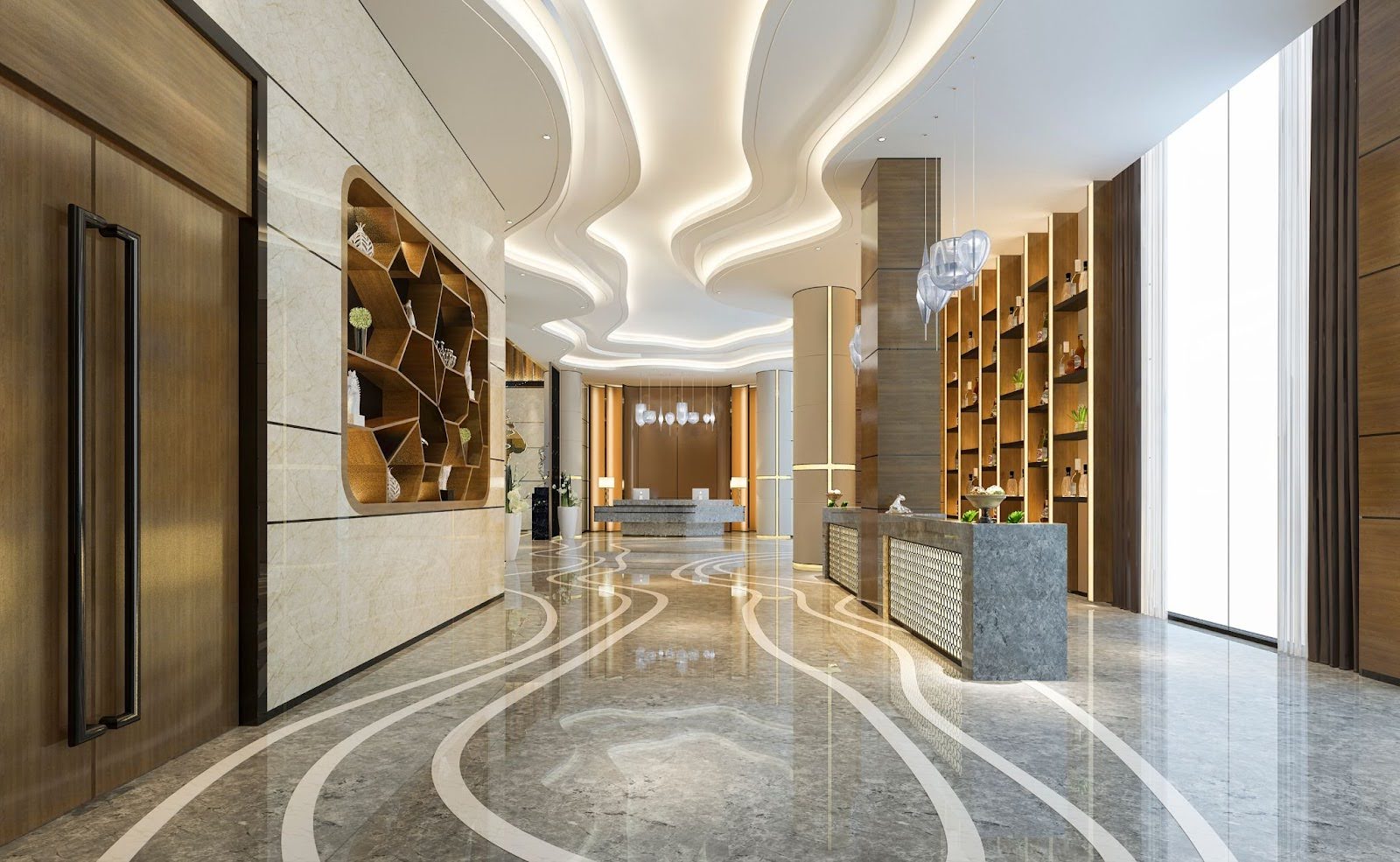
California Lobby Security for Property Managers
California does not have a law that requires building lobbies to have security guards. However, property managers and owners with employees working on the premises do have a responsibility to provide a safe and secure environment for those who visit, live, or work on-site.
Hiring guards and installing security systems are some of the best ways to create that environment. If you’re considering hiring security guards or expanding the security you already have, here’s what you should know about California lobby security.
Does Your California Lobby Need Security Guards?
Every lobby faces security risks, but property owners and managers should be aware of the following risks that are specific to California.
Natural Disasters
California is prone to natural disasters like earthquakes and wildfires, both of which can make building lobby security systems go down. Backup power systems and security guards are necessary to keep security systems functioning.
Location Challenges
Location can also present security challenges, particularly in:
- High-crime neighborhoods
- Areas with high foot traffic due to tourism and/or temporary film sets
- Residential or other areas where celebrity or VIP clients need added protection, particularly in Los Angeles and Southern California
If your lobby is located near one or more of these types of locations, hiring patrol guards can improve security while also creating a deterrent effect.
Regulatory Requirements
California may not legally require security guards in lobbies, but the state’s privacy laws do regulate where you can place cameras. Property owners and managers must also comply with Cal/OSHA workplace rules and ADA standards.
Warning Signs You Need Lobby Security Guards
Not sure if your lobby needs professional security? These red flags are a sign it’s time to improve your existing security measures.
Tenants in Your Building Expressed Security Concerns
If your building tenants have come to you with security concerns, staffing your lobby with trained security personnel can put them at ease. Otherwise, tenants and lessees may not renew leases, leading to vacant units and undesirable properties.
Your Property is Located in a High-Crime Area
The higher the crime rate in your building’s neighborhood, the more important it is to create a secure environment both inside and around the perimeter. Depending on your security needs, lobby security staff can either maintain a low profile or become a visible presence, going as far as screening for weapons or other unauthorized items at the door.
You Have High-Profile Tenants or Residents
Whether they live, work, visit, or conduct business in your building, you can offer celebrities, CEOs, and other high-profile visitors an added layer of protection by hiring building security. Lobby security guards create a safe, welcoming environment that VIP clients will appreciate, even when they’re traveling with bodyguards or personal security teams.
You Had Security Breaches in the Past
If you’ve had security breaches in the past, don’t wait for history to repeat itself. Put guards in place now as a preventative measure to thwart future incidents in your lobby.
You Might Like: The Beginner’s Guide to Hiring California Commercial Security Guards
Security Risks and Needs by Lobby Type
Not every type of lobby requires complex security measures, but for some properties it’s a must. Below is a breakdown of lobby security risks by building type.
Office Buildings
If you run a high-rise office building that rents space to one or more business tenants, it’s time to hire lobby security. Lobby guards can monitor guests and visitors to prevent unauthorized access and reduce the risk of property crimes, such as burglary or vandalism.
Banks
While most banks have guards stationed inside, financial institutions that have large lobbies or welcome areas can benefit from having a guard stationed near the door. This guard will be the first line of defense against criminal activity.
Corporate Headquarters
Depending on the nature of the business, a front desk receptionist might be all you need to control who enters the building. But in some industries, a trained security guard is the preferred choice. Guards can take measures to protect employees and visitors as well as data, technology, equipment, and materials.
Hospitals and Healthcare Facilities
In medical facilities, lobby guards are essential. They keep the peace, maintain order, restrict access to unauthorized visitors, and create a safe environment in a space that can otherwise be quite hectic.
Educational Institutions
Schools are high-risk targets, and security threats in schools have unfortunately become all too common. In 2024, there were 83 school shootings across the United States – the highest annual number on record to date.
Lobby areas at schools serve several purposes. These include controlling the flow of students, staff, and visitors, preventing weapons from entering the premises, and denying entry to would-be criminals who could jeopardize the safety of students and staff.
Government Buildings
Government buildings are usually open for public access, which means they’re always at risk of a security breach. Most federal buildings and courthouses have robust security measures, but it’s less common in local and state-level government buildings.
Gated Residential Communities
Gated communities and high-end apartment buildings often use key cards or fobs to limit access to residents. Add another layer of protection by hiring lobby security guards to control who can enter and when, including visitors, contractors, and delivery personnel. Whether it’s a gated senior living condominium or a luxury apartment building with celebrity tenants, residents living “behind the gates” want to enjoy the security they’re paying for.
Hotels
Many luxury hotels with grand lobbies prefer to avoid visible security guards, but for some guests it can be a reassuring sight. At a minimum, guards should be staffed in lobby areas at elevator bays to ensure only authorized guests can access guest floors. To maintain an upscale experience, consider having your guards wear suits and ties, rather than traditional uniforms, to blend in with the concierge.
How to Work with Security Professionals to Assess Risks
All California security guards are licensed and trained in access control, suspicious activity detection, emergency response, and crime deterrence, but you’ll still need to carefully vet security firms to find the best one for your lobby’s unique security needs.
Researching Security Firms
Verify that the security company has a California license to provide professional security services. Request references from existing or prior clients and confirm that they have experience in protecting properties similar to yours.
Preparing for a Security Assessment
Before interviewing and vetting a security company, gather building plans, incident reports, and insurance claims from prior incidents (if applicable). It’s also wise to gather tenant feedback to pinpoint any other security concerns.
Conducting a Walkthrough
Schedule a walkthrough of your lobby during peak traffic times. The security company should provide a written report with prioritized recommendations regarding the type of security measures you need, how many guards you need, and any security technology that should be installed or upgraded.
What to Review During a Security Assessment
During the initial walkthrough of your lobby, a security company will assess your current security protocols, including access control systems, emergency response protocols, and support for day-to-day operations. They will also recommend systems that you can put in place to increase security.
Access Control
During the assessment, discuss your current access control system and allow the security company to recommend better, more secure methods of protection, including:
- Badge or ID verification systems for authorized personnel
- Visitor check-in protocols, ID verification, and badge issuance
- Metal detection and weapons screening capabilities (if applicable)
Emergency Response
During an assessment, your security company will review and make recommendations about your emergency response systems, including:
- Evacuation and lockdown security procedures
- Protocols for coordinating with law enforcement and first responders
- Incident containment protocols while waiting for authorities to arrive
Support for Day-to-Day Operations
Lobby security guards should facilitate the day-to-day operations of your property and the tenants within. During an assessment, your security company will assess how well your current security measures:
- Manage visitors and provide customer service
- Manage deliveries and package drop-offs
- Control the traffic flow during peak hours
For high-risk properties, a security company may also recommend that you add K9 detection services.
How to Find Lobby Security Guards in California
The easiest way to find lobby security guards in California is Security Explorer. To get started, simply fill out a brief form with your contact information, location, and security needs. A member of our team will reach out to you to verify your information then connect you with vetted, verified security professionals in your area.
Security Explorer can recommend all types of security guards, including those who specialize in providing security for banks, commercial office buildings, and residential communities.
FAQs: What to Consider When Hiring California Lobby Security
Do you need 24/7 lobby security or part-time security personnel?
In most cases, full-time security guard services are best. Security incidents can happen at any time, so protecting your lobby around the clock is always better than having part-time guards present. 24/7 security is a must if you operate a 24-hour property like a healthcare facility, an office building where tenants work late into the night or arrive early in the morning, or a residential facility where people come and go at all hours.
If you decide to hire part-time guards during hours of operation only, protect yourself around the clock with CCTV surveillance systems that off-site security personnel can monitor remotely.
Should you hire armed guards or unarmed guards?
The decision to hire armed or unarmed guards largely depends on your personal preference and the types of people who visit or work in the building daily. Government buildings, banks, hospitals, transit centers, and schools are among the types of buildings that most often hire armed guards, but some residential facilities, hotels, and corporate buildings with high-profile companies hire them as well.
Should guards patrol or remain stationed at a front desk?
Whether to have guards on patrol or stationed at a fixed desk depends on the nature of your property and how many people come and go through the lobby on a regular basis.
For example, in a small office building or medical facility with one entry point, a guard stationed at a lobby desk may suffice. For larger properties, like hospitals and commercial buildings with lots of foot traffic, it might make more sense to have guards stationed at a front desk and on mobile patrol to monitor all areas of the lobby.
Is your security technology up to date?
There’s much more to lobby security than hiring physical security officers to stand guard; having the right technology in place is equally as important. Consider whether you need to install or upgrade:
- Alarm systems at access points
- Access control systems (key fobs and key cards) that restrict entry and prevent unauthorized access
- Motion detectors
- CCTV surveillance systems
Security guards in lobbies keep people safe by preventing incidents from occurring and responding immediately should one arise. To provide your tenants, guests, customers, or clients in California with the safety and security that they deserve, contact Security Explorer now.
Read Also: California Parking Lot Security: Benefits and Considerations
Read More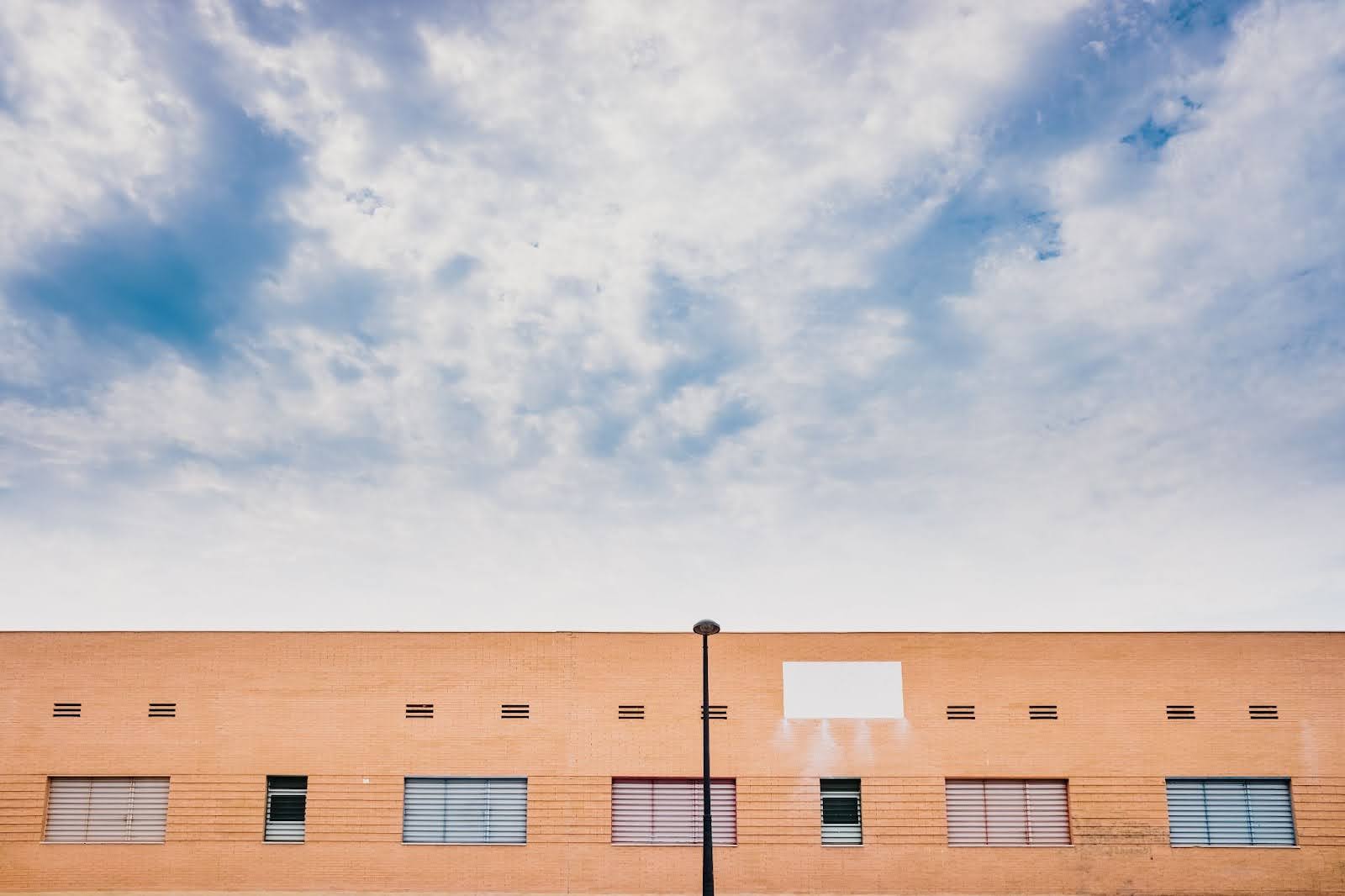
California Vacant Property Security
Vacant properties are known to draw the attention of unwanted visitors. This includes would-be criminals who want to vandalize your building or steal equipment, and squatters seeking to move in without your permission.
And for certain types of structures in California, it’s also unlawful to leave a property vacant without taking necessary security precautions.
Whether you own a vacation home, an unoccupied apartment complex, or an empty commercial building, here’s what every property owner should know about California vacant property security.
Why Do I Need Vacant Property Security in California?
Vacant property owners in California must comply with the state’s strict regulations and requirements. All property owners, including those with temporarily vacant properties, should know the laws and regulations in their region.
California Security Ordinances
Every county in California has its own rules, so be aware of your locality’s current ordinances.
For example, vacant property owners in Los Angeles are required to protect their property from vandalism and trespassing and prevent them from becoming a fire hazard or public nuisance. Under Los Angeles Municipal Code LAMC 98.0716, property owners who do not comply may face fines of up to $1,000 per day.
Throughout the state, regulations are subject to change at any time, and it’s up to property owners to stay abreast of the changes. Hiring security guards (who know the current regulations) to protect your property can help you remain in compliance with local laws.
Legal Liability and Property Management
Using security systems and guards to monitor your vacant property will not only help with property maintenance, it may also reduce your insurance premiums. Many insurance companies offer discounts on vacant property premiums if the owner uses professional security services, which can significantly reduce the risk of theft, vandalism, and liability claims.
Should an incident occur — such as a person getting injured while trespassing — you’ll have better protection from negligence lawsuits if you had well-documented security measures in place at the time.
Documentation of your security practices can prove that reasonable efforts were made to secure the property and deter unauthorized access. Security companies maintain documentation such as incident reports, surveillance footage, and patrol logs — all of which can be useful should you have to battle an insurance claim.
Safety Benefits of Hiring Security
In addition to remaining in compliance with local laws and potentially reducing liability premiums, having security measures in place offers a multitude of inherent safety benefits. Security systems:
- Deter criminal activity: Reduce the likelihood of vandalism, property theft, trespassing, squatting, drug activity, arson, and property destruction.
- Maintain access control: Access systems at entry points prevent unauthorized entry.
- Enable fast response to security threats: On-site guards are trained to react quickly if a security breach occurs.
- Improve emergency response times: During a security breach or emergency, security guards can contact law enforcement and emergency services for immediate assistance.
What Are Some of the Warning Signs You Need Security?
While all vacant properties can benefit from having security measures in place, not all need them. If you’re debating hiring security for your property, there are some strong warning signs to look for.
Indications that your vacant property is being targeted, rising crime rates in the neighborhood, and visible signs of attempted break-ins are all signs that it’s time to hire security.
Vacant Property Security Risks by Type
Any type of vacant residential, industrial, or commercial property can face potential threats and criminal activity, but some vacant properties in California are at much higher risk than others.
Construction Sites
- Risks: Construction sites are highly susceptible to vandalism, theft of equipment, and theft of high-value materials such as copper pipes, and leaving them vacant can expose you to legal liabilities if someone gets injured while trespassing.
- Solutions: The larger the site, the more important it is to hire security officers to protect your investment and prevent expensive legal consequences.
Properties Undergoing Renovations
- Risks: Like construction sites, vacant properties can attract vandals and thieves, but may also attract squatters looking to live in your property.
- Solutions: Protect your real estate investment with a security guard and CCTV cameras to prevent unauthorized people from loitering or living in your property.
Multi-Family Residences and Commercial Buildings
- Risks: Large vacant buildings like multi-family residences or commercial structures face threats from unauthorized access and various crimes.
- Solutions: Put security professionals on staff as a visual deterrent to prevent unauthorized access and prevent crimes from occurring.
Residential Homes Pending Sale or Under Foreclosure
- Risks: Homes under contract for sale or listed on the market shouldn’t be left empty for weeks or months at a time, as thieves, vandals, and squatters all pose serious risks.
- Solutions: At a minimum, install CCTV surveillance cameras that you can monitor remotely.
Vacation and Part-Time Residences
- Risks: Leaving your primary or vacation home unattended for a long time makes you susceptible to all sorts of property crimes, and you may have to contend with squatters who claim squatters’ rights, resulting in expensive legal battles.
- Solutions: Consider installing CCTV surveillance cameras to monitor your property remotely, especially if you don’t have nearby neighbors to regularly check on the home.
Properties Owned or Operated by Government Agencies
- Risks: Empty municipal buildings that are either not in use or under reconstruction face vandalism and unauthorized use.
- Solutions: Local governments are responsible for protecting these properties, including those under management of housing associations like Public Housing Authorities.
Read About: Top Security Threats to California Commercial Properties
What to Consider When Hiring Security Guards to Protect Your Vacant Property
Once you’ve determined you need security to protect your vacant property, think about the type of guards and systems you need. Also, consider what you want your overall security plan to look like.
Here’s a look at the top factors to consider.
24/7 vs. Part-time Security
Depending on the location of your property, you may need security guards around the clock or only during off-peak hours, such as nights and weekends. When you hire a professional security company, they’ll do a complete risk assessment of the property and surrounding area to recommend the level of security you need.
Armed vs. Unarmed Guards
All security guards in California are required to undergo professional security training programs and pass a test to obtain their state-licensed guard card. Armed guards have additional firearms training and are licensed to carry a weapon in the state.
Whether to hire armed or unarmed guards depends on the type of vacant property you own and how much crime occurs in the area.
Security Technology Needs
With or without the presence of physical guards, all vacant properties can enjoy the protection of a video surveillance system. Remotely monitored CCTV cameras are excellent crime deterrents.
In addition to CCTV surveillance cameras, consider leveling up security measures by installing other types of technology, such as:
- Smart alarm systems
- Glass break detectors
- Motion detectors
- Smart locks
- Access control systems
- Perimeter detection tech
On a large piece of land or a property with multiple buildings or units, consider installing multiple tech systems in different areas.
Emergency Procedures
Before hiring a security company, do your research to understand the specific protocols they have in place for handling threats, security breaches, and emergencies. For example:
- What are their incident response protocols?
- How do they coordinate with local law enforcement?
- What are their emergency contact procedures?
It’s critical to be aware of how your security guards will conduct themselves, especially if you’re far from the site or visit the property infrequently.
Learn More: What Are the Different Types of Security Guards?
Isn’t It Enough to Just Board Up My Vacant Property?
Boarding up your vacant property is a smart first step toward securing the building, but it shouldn’t be your only line of defense.
How Physical Barriers Help
Boarding does offer real security benefits and property protection by creating physical barriers at doors, windows, and other access points. This makes unauthorized entry more difficult and time-consuming, often deterring casual vandals and opportunistic thieves. It can also provide a degree of weather protection from storm and natural disaster damage, including water intrusion and debris.
But when it comes to boarding materials, steel or metal security barriers far outperform plywood. While plywood can be easily kicked in, pried off, or damaged by weather, steel barriers provide actual resistance to forced entry attempts. Steel barriers also create a more professional appearance and last significantly longer without deteriorating, making them more cost-effective despite higher upfront costs.
Why You Still Need Professional Security
Even the best steel security barriers have limitations that only professional security guard services can address.
Barriers are passive, which means they can’t respond to threats, contact law enforcement, or provide real-time monitoring. Determined intruders can still find ways around physical barriers and window guards if given enough time and tools.
Boarding also won’t prevent criminal activity outside of your building, such as illegal dumping. It also can’t detect emergencies like fires or gas leaks. The best approach is to combine steel barriers with a security team, giving you the benefits of both active monitoring and a physical deterrence.
How Much Does It Cost to Hire Vacant Property Security Guards?
Different factors affect the cost of security services in California, so the best way to know what you’ll need to pay is to get quotes from local security providers.
Keep in mind that no matter the cost, an investment in vacant property security can save money in the long run.
What Affects the Cost of Hiring Security?
The three biggest factors that impact the cost of hiring security are:
- Property size
- Location
- Threat level
Due to increased risk and insurance requirements, high-crime areas and larger properties requiring multiple guards command premium rates. You’ll also pay more per hour to staff armed guards rather than unarmed officers.
How Does Hiring Security Save Money?
A single break-in can cost a property owner thousands of dollars in damages and liability exposure. Investing in a security team, even if they only prevent a single incident per year, can cost you far less than running the risk of going without one.
Having on-site security guards and protocols in place also helps you avoid costly municipal fines and lowers the cost of insurance premiums. These also make it a more cost-effective option than forgoing security because you don’t want to incur the expense.
Check Out: The Beginner’s Guide to Hiring California Commercial Security Guards
How Can I Find Vacant Property Security Services in California?
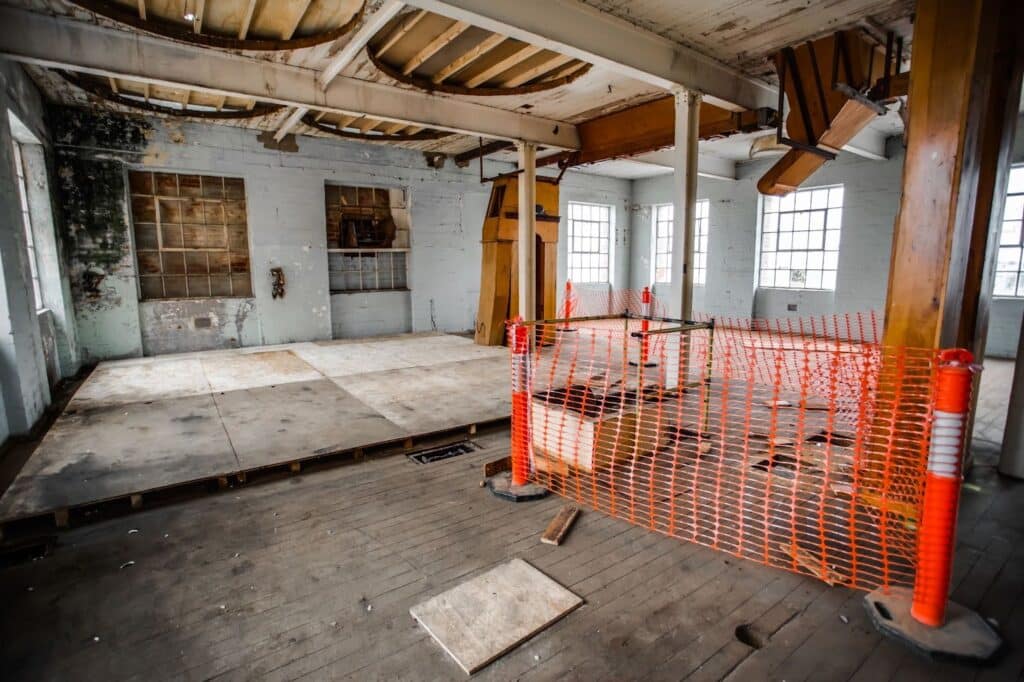
Once we receive your form, a member of our team will reach out to verify your information and connect you with a vetted, verified security team in your local area who can provide you with security solutions that will work for you.
Leaving a property unoccupied and unattended increases the risk of trespassers, vandals, thieves, squatters, arson, and all sorts of criminal activity. It also puts you at risk of violating local California ordinances and regulations, which can subject you to expensive fines and fees.
Before someone damages your property, injures themselves while trespassing, or decides that your vacant property is the perfect place to commit criminal activity, hire a professional security team to protect your investment.
To find top-rated security professionals in your California city, contact Security Explorer now.
Up Next: California Parking Lot Security: Benefits and Considerations
Read More
The 7 Skills of a Top-Tier Security Guard Manager
Security guard managers are in high demand, but what separates a successful leader from one who simply holds the title?
While hard work, training, and technical expertise provide the foundation, it’s also soft skills — communication, leadership, and ethics — that determine how well a manager can guide and motivate their team.
If you want to pursue a career in the security industry, here’s a closer look at the seven security manager skills you need to succeed, with tips for mastering every skill.
Start Here: Must-Have Security Manager Skills
As with any supervisor in any career, security guard managers need a specific skill set to do the job, beginning with on-the-ground industry experience and technical expertise.
Skill #1: Industry Knowledge and Experience
You can’t effectively lead what you haven’t done yourself. Practical security guard experience is essential not only for managing a team, but also for building credibility.
When looking at security manager job descriptions, you’ll notice they often include these core requirements:
- A bachelor’s degree in criminal justice
- A law enforcement or military background
- Prior experience working as an entry-level security officer
Different employers may have different or additional requirements, but completing a professional security guard training program (and holding a security guard certification, if you’re in a license-only state like California) tends to be standard.
Browse recommended security guard manager services in popular destinations:
Security guard manager services in Los Angeles | security guard manager services in Sacramento | security guard manager services in San Francisco
Making It Happen
Tips for developing your knowledge and experience of the security industry:
- Pursue formal training. Complete security guard training and continuing education to develop your professional experience.
- Stay abreast of best practices in the security industry. If you plan to work in a niche security sector, such as event, fire watch, or K9 security, you’ll also need any related specialty knowledge.
Skill #2: Mastery of Security Technology
Security systems expertise is a baseline skill for security managers. You can’t manage security operations if you don’t understand the technology that supports them.
For example, security managers who protect commercial properties, residential properties, or industrial facilities must know how to operate and maintain access control systems, alarm systems, and CCTV monitoring systems.
Similarly, cybersecurity managers must undergo intensive training to understand the proper detection and prevention of cyber threats.
Making It Happen
Here’s how to develop your technical expertise:
- Pursue formal training and hands-on experience. Obtain industry certifications like CPP (Certified Protection Professional) or PSP (Physical Security Professional), and enroll in manufacturer-specific training programs from companies like Honeywell, Bosch, and Hikvision.
- Get practical experience. Shadow security technicians during routine system checks, or volunteer for system installations, maintenance, or upgrades at your workplace.
- Stay current. Join professional associations like ASIS International for access to technical workshops and networking with systems experts. Subscribe to industry publications like Security Management Magazine and SecurityInfoWatch, and follow security technology vendors on LinkedIn for product updates.
- Seek out opportunities to work directly with different systems. Request cross-training assignments, attend trade shows to interact with new technology, and build relationships with your organization’s technology vendors who can provide ongoing education and support.
Related: Security Guard Training: How to Get Certified and Level Up Your Security Services Today
When Things Get Real: Managing Security Under Pressure
As a security guard manager, situations can become dangerous in an instant. The best security guard managers have the skills it takes to make good decisions under intense pressure.
Skill #3: Preparing for the Worst While Hoping for the Best
A security professional’s job isn’t to assume the worst will happen, but to prepare for it.
Managing security operations means understanding risk assessment. In other words, knowing how to:
- Anticipate and identify vulnerabilities
- Perform proactive security risk assessments
- Develop detailed security strategies to improve overall security measures
All of the above require strong security awareness and instincts. In other words, you need to master how to think and plan ahead if you want to lead a team that successfully prevents potential security breaches.
Making It Happen
Use these tips to improve your risk assessment abilities and mindset:
- Practice threat modeling exercises. Regularly walk through your facility or review your systems, asking “What could go wrong here?” and “How would someone exploit this?”
- Analyze real security incidents. Focus specifically on how vulnerabilities were exploited to improve your threat identification skills.
- Conduct regular security audits. Schedule monthly walkthroughs of your premises, reviewing everything from physical access points to procedural gaps.
- Engage in scenario planning. Run “what-if” exercises with your team, discussing response strategies for various emergency situations.
Skill #4: Crisis Management and Keeping Cool
Should a security threat occur, you need to know how to handle the situation — and that means keeping your cool. Crisis management is necessary to keep people safe, and you must have incident response and emergency response plans in place to manage a crisis should one arise.
A crisis could be anything from a medical emergency to an armed robbery to a natural disaster. Security managers need real-world problem-solving and crisis management skills to guide their teams, ensuring everyone understands the protocols.
Making It Happen
Take a look at these proven strategies for building your crisis management skills and training your team to respond:
- Regularly test your emergency response plans. Conduct quarterly emergency drills for different scenarios (fire, lockdown, medical emergency) and time your team’s response.
- Set clear communication protocols. Define who reports to whom during emergencies and ensure everyone knows their role before a crisis hits.
- Run post-incident reviews. After every emergency (real or simulated), gather your team to discuss what worked, what didn’t, and how to improve response times.
Skill #5: De-escalation and Conflict Resolution
One of a security guard manager’s primary responsibilities is knowing how to spot and de-escalate potential threats.
Threat mitigation is key to keeping people and properties safe. As a security guard manager, it’s incumbent upon you to help every member of your team develop this unique skill as well.
Making It Happen
Develop your de-escalation and conflict resolution skills with these practical exercises:
- Stage de-escalation scenarios. Role-play different confrontational situations, focusing on a variety of verbal and non-verbal calming strategies.
- Review case studies. Read about successful and failed de-escalation attempts, identifying the verbal techniques and body language choices that led to positive or negative outcomes.
- Practice in the mirror. Work on maintaining calm facial expressions, open body posture, and a controlled vocal tone while rehearsing de-escalation phrases. Practice looking confident but non-threatening, and work on keeping your hands visible and movements slow and deliberate.
- Learn from the experts. Study de-escalation tactics and techniques used by mental health professionals, social workers, and hostage negotiators.
You Might Like: What Are the Different Types of Security Guards?
Interpersonal Skills: Leading a Security Team

Skill #6: Communication and Active Listening
Written and verbal communication skills are important for almost any career path. They’re also core leadership skills for anyone who wants to work in management.
However, effective communication isn’t just about speaking and writing clearly. You also need to be skilled in active listening.
Security managers must listen to understand, not just to respond, when fielding concerns from team members and gathering critical information during incidents. The ability to truly hear what others are saying often makes the difference between resolving issues quickly and letting small problems escalate into major ones.
Making It Happen
Here’s how to strengthen your written communication skills:
- Master clear email communication. Write concise subject lines, use bullet points for complex information, and always include specific next steps or deadlines when requesting action from your team.
- Create user-friendly security contracts. Use plain language instead of jargon, break down complex procedures into numbered steps, and include visual aids or diagrams when explaining security protocols.
- Maintain high incident report standards. Document events immediately while details are fresh, stick to observable facts without personal opinions, and ensure your reports tell the complete story from start to finish for legal and insurance purposes.
Tips for developing stronger verbal communication skills:
- Practice active listening. Focus on understanding before responding, ask clarifying questions to ensure you’ve grasped the full message, and avoid interrupting team members even when you think you know what they’re going to say.
- Seek regular feedback on your communication style. Ask trusted colleagues and team members how clearly you explain instructions, whether your tone comes across as intended, and if there are areas where you could be more effective.
- Join professional speaking organizations. Consider groups like Toastmasters to practice public speaking, learn to organize your thoughts clearly under pressure, and develop confidence when addressing your team or presenting to management.
Skill #7: Ethics, Integrity, and Professional Standards
Whether you’re tasked with establishing new security policies or following existing protocols, ethics and integrity are non-negotiable if you hope to advance your career.
Security managers may face several common ethical dilemmas, including but not limited to:
- Balancing client and stakeholder needs with legal obligations
- Handling confidential information in an appropriate manner
- Managing conflicts of interest with vendors or contractors
- Making tough calls about employee misconduct
Without integrity and unshakeable professional standards, security managers may struggle to address these tough situations.
Making It Happen
Strengthen your ethical and professional standards with these practical approaches:
- Join professional associations with strong ethical codes. Organizations like ASIS International provide established ethical frameworks, continuing education on professional standards, and resources for navigating complex moral decisions in security management.
- Seek mentorship from respected industry leaders. Connect with experienced security managers who have faced similar ethical challenges, ask them how they’ve handled difficult situations, and learn from their decision-making processes.
- Create a personal ethical code. Take the initiative to define and write down your professional boundaries and decision-making criteria, giving yourself ethical guidelines to rely on when facing high-stakes situations.
To thrive as a security guard manager, you need the right balance of hard and soft skills.
Start by reviewing security manager job postings that interest you and looking for patterns. Most, if not all, security management jobs require industry experience, professional education, and hard skills like knowledge of the latest security technologies.
Don’t forget to work on your soft skills like verbal and written communication, threat de-escalation, maintaining calm under stress, and holding yourself to a set of ironclad ethical and professional standards.
All of the above will make you a stronger leader — and with great leadership, the guards you manage and the people you’re hired to protect will be safer and more secure.
To learn more about the industry and the different types of security guards that you can train to be, visit Security Explorer’s resources page now.
Up Next: How to Win More Security Contracts for Your Security Company
Read More
Security Guard Training: How to Get Certified and Level Up Your Security Services Today
Security guards are crime prevention specialists with the tenth fastest-growing job position in the United States. Similar to people who work in law enforcement, such as police officers, you’ll need to undergo proper training to do the job.
There are plenty of ways to break into this high-demand industry. Online, in-person, and specialized security guard training programs offer flexible pathways for those who wish to work in public safety.
Whether you’re an aspiring security guard or a seasoned professional who just wants to update your credentials, here’s what you need to do to become certified and level up your security skills.
How to Get Proper Security Guard Training

To start, you must meet basic eligibility requirements, such as:
- Being at least 18 years old
- Having a high school diploma or GED
- Having a clean criminal record with no felonies or violent convictions
If you meet the basic requirements, most states will also require you to:
- Pass a background check
- Complete a security guard training course(s)
- Pass a written test
- Apply for the security license or required certification in your state
Register for Security Guard Training Classes
So, what’s the first step to becoming a security guard?
The answer is registering for a training course. However, keep in mind that state training requirements can vary.
Some states don’t require you to take an official course to work as an unarmed security guard. Instead, you can be hired by a professional security company and undergo an on-the-job training course for security guards. As long as your employer has a valid state security license, they can oversee your certification.
By contrast, other states will expect you to take an 8-hour pre-assignment training course. This provides a general introduction to what you need to know to work in security.
Certain states may require unarmed guards to complete anywhere from 16 to 40 hours of education. Some may even mandate additional on-the-job training or continuing education every year.
To work as an armed security guard, you’ll need firearms training from a certified instructor. Most states will also require you to take firearms safety and operation classes.
Learn more about your state’s training requirements by visiting your state.gov website. You can also review this quick guide to security guard license requirements in all 50 states.
Online Security Guard Training Courses
Some states, such as California, require you to take 40 hours of security guard training. Expect to take courses in:
- The powers of arrest
- The liability and legal aspects of working as a guard
- Weapons of mass destruction and terrorism awareness
- Observation and documentation of incidents
If you live in a state that allows you to get your certification from an online security guard training school, it’s worth looking into one of the following options:
- National Investigative Training Academy
- Top Gun Security Training
- Academy of Personal Protection and Security
- AEGIS Security & Investigations
In-Person Courses
You can find a list of in-person security training programs here.
If you’re looking to become a licensed and certified armed guard, you’ll also need to enroll in an in-person firearms training program. That applies even if you do your unarmed training online.
As you advance in your security career, it’s important to understand the skills required to become a successful security manager and how training today can lay the foundation for future leadership roles.
Related: How to Get Your California Guard Card
What Type of Hard and Soft Skills Do Security Guards Need?

Hard Skills for Security Guards
Here are the technical skills every security officer needs to have:
- Observational skills: The key responsibilities of a security guard include knowing how to detect potential threats and suspicious activity, always maintaining situational awareness, and documenting incidents and events based on those observations.
- Technical expertise: Technical expertise is a must-have for guards who maintain or monitor surveillance systems, CCTV cameras, security alarm systems, metal detectors, and access control systems.
- First aid and CPR skills: Security guards must jump into action in emergency situations, so it’s important to know how to perform CPR, how to use an AED defibrillator device, and other basic life-saving measures.
- Firearms expertise: For armed guards licensed to carry a weapon, firearms expertise isn’t only a necessary skill — it’s required by law.
- Crowd control skills: Security officers must know use of force regulations, how to manage large crowds, and how to assist with emergency evacuation procedures in different scenarios and locations.
- Physical skills: Security professionals must maintain physical fitness as well as learn how to use defensive techniques to protect themselves and others.
Soft Skills for Security Guards
Because security guards need to be able to detect and deescalate threats, it’s important to have certain interpersonal or “soft” skills to perform the job well.
Key soft skills for security officers include:
- Communication skills: High-quality speaking, writing, and listening skills are essential for conflict resolution and de-escalating situations.
- Problem-solving skills: It’s important for security professionals to know how to pivot during a dangerous incident and quickly turn their attention to and from security breaches and emergency situations.
- Teamwork skills: Most security guards work in teams, so they need to know how to work and communicate effectively with other security personnel. Teamwork is also necessary to understand and comply with the chain of command.
You Might Like: What Are the Different Types of Security Guards?
How Security Companies Can Level Up Existing Guards

To build strong teams, reduce turnover, and encourage employees to advance their careers in the security industry, make sure you’re giving your guards opportunities to undergo specialized training.
Specialized training for security guards includes, but is not limited to:
- Firearms handling
- K9 handling
- CCTV monitoring
- Fire watch protection
- Bodyguard services
The more specialized guards you have on your team, the more poised you’ll be to accept clients with more specific security needs. In other words, it’s a great way to win more security contracts.
You can also level your security guards’ skills by creating a mentorship program. Encouraging more experienced security guards to mentor entry-level guards is an excellent way to help novices develop their skill set.
Browse recommended security services in popular destinations:
Security services in Los Angeles | security services in Sacramento | security services in San Francisco
Becoming a security guard can take anywhere from a few weeks to a few months, depending on your state’s licensing requirements.
Proper training is essential — not only for your own safety, but for the safety of the people you’ll be hired to protect. Ongoing training is also necessary if you want to stay at the top of your game and advance your career.
To learn more about the industry and the different types of security guards that you can train to be, visit Security Explorer now.
Up Next: The Ultimate Guide to Hiring Residential Security Guard Services in California
Read More
The Ultimate Guide to Hiring Residential Security Guard Services in California
Home invasions and break-ins are all too common in California’s residential areas, and not just areas with a reputation for crime. Now, Californians are fighting back by hiring security to protect their homes.
Are you a California resident who’s thinking about hiring residential security guard services?
If the answer is yes, you’re in luck. Ahead, we’ll tell you everything homeowners and HOA board members should know to hire the best residential security guards in the business.
(more…)

The Ultimate Event Security Checklist
As an event planner, you’re juggling countless details, reserving the perfect venue, coordinating with vendors for catering and entertainment, managing décor, and arranging parking and check-in logistics.
But there’s one crucial element that must remain top of mind: security.
Security should be a priority in event management, as it ensures the safety of guests, staff, and the venue itself. Planning for it, however, can be complex and requires careful attention to detail.
No matter the type or size of your gathering, here’s a comprehensive event security checklist to help you organize a safe and successful event.
Read More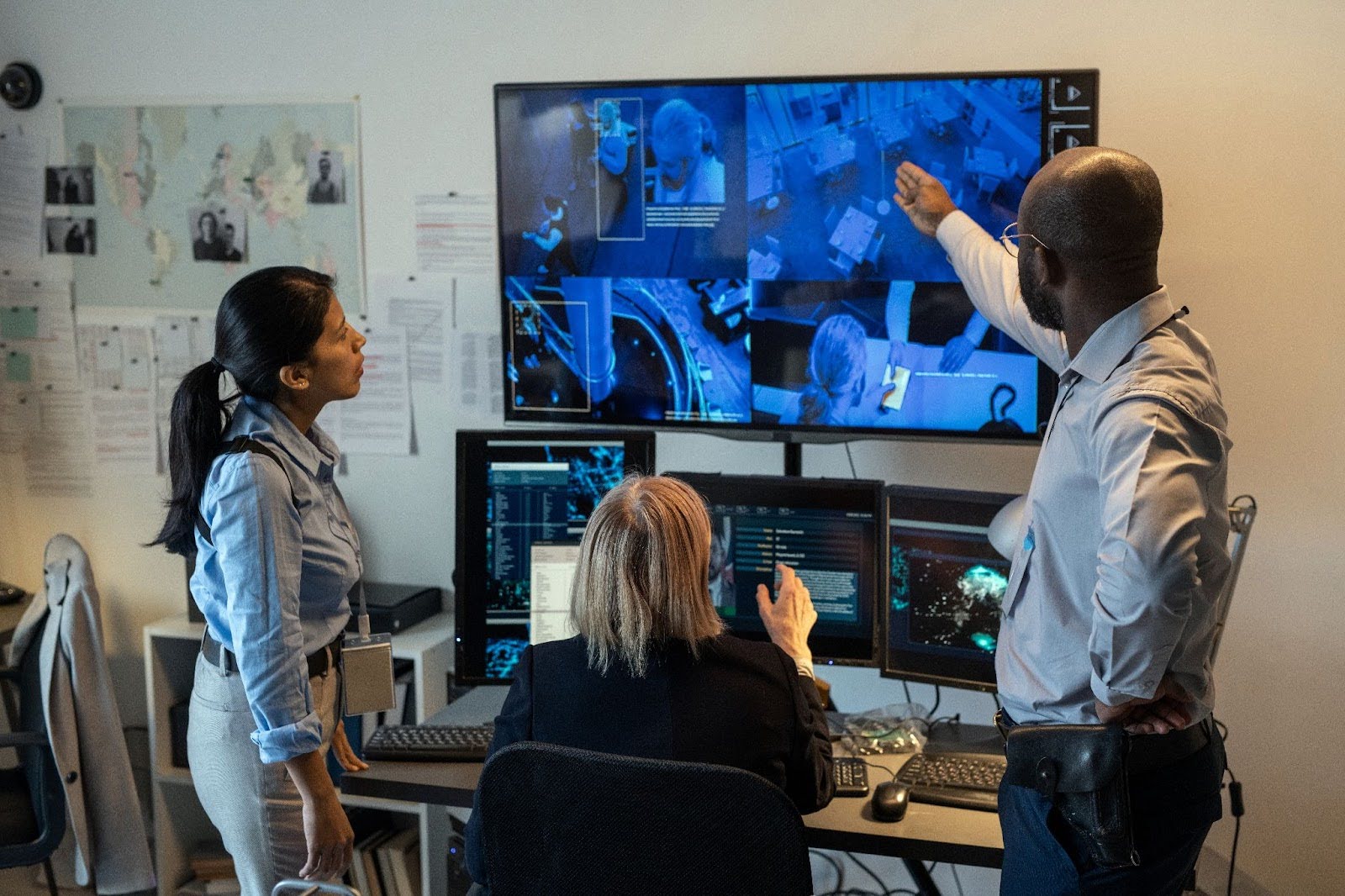
Full Guide to CCTV Monitoring
There are now more than 70 million CCTV cameras in the United States.
Video surveillance has become central to everyday operations — and for good reason.
CCTV monitoring can’t stop all criminal activity, but it’s among the best tools for deterring and investigating crime. Installing a proper CCTV camera system should be at the top of your priority list if you’re not already using them to protect your business or private property.
Read our full guide to CCTV security monitoring before you buy a system and attempt to install it yourself. This guide looks into the key reasons why you need one, as well as how to choose and properly install the best system.
Read More
Open Window Security: Should I Leave My Window Open at Night?
When it comes to open windows, there’s no contest. Everyone loves a little fresh air.
And it certainly doesn’t hurt when that cool, extra airflow can replace your air conditioning and lower your energy bills.
Open windows come with plenty of perks, but might not always be the safest solution when you need a soft breeze or some ambient noise to lull you to sleep.
Before you fling open your window tonight, there are a few things you should know — including the danger in which you could be putting yourself.
If you’re a sleep-with-the-window-open kind of person, keep reading to learn everything you need to know about open-window security.
Read More
5 Reasons Why Gated Communities are Safer for Your Family
Whether you’re looking for a short-term rental or planning to purchase your dream home, deciding where to live is a big decision.
For some people, that decision is all about price. For others, it’s about location. Some folks even prioritize the size or style of the home.
But one thing that almost everyone can agree on is that no matter where they live, they want to feel safe. And that’s why so many people want to live in a gated community.
If you’re preparing to move and safety and security are your top concerns, a gated community might be the best decision you’ll ever make. Read on to learn why.
Read More





